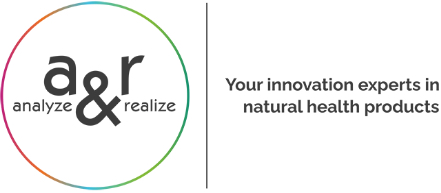
The regulation (EU) 2019/1381 on the transparency and sustainability of the EU risk assessment in the food chain (‘Transparency Regulation’), amending the general food law (EC) 178/2002, sets out rules to ensure transparent, continuous and inclusive risk communication throughout the risk analysis of regulated products. These changes are intended to strengthen citizens’ trust that the risk analysis is underpinned by the objective of ensuring a high level of protection of human health and consumers’ interests. Moreover, they should enable a participatory and open dialogue between all interested parties. Regulation (EU) 2019/1381 entered into force on March 27, 2021.
For novel foods, commission implementing decisions have been recently published:
- Commission Implementing Regulation (EU) 2020/1772 amending Implementing Regulation (EU) 2017/2469 laying down administrative and scientific requirements for applications referred to in Article 10 of Regulation (EU) 2015/2283 of the European Parliament and of the Council on novel foods.
- Commission Implementing Regulation (EU) 2020/1824 of 2 December 2020 amending Implementing Regulation (EU) 2017/2468 laying down administrative and scientific requirements concerning traditional foods from third countries in accordance with Regulation (EU) 2015/2283 of the European Parliament and of the Council on novel foods
To our best knowledge, the Regulations for food improvement agents have not yet been amended.
The submission portal at the European Commission has been modified accordingly and is operating as of March 27, 2021.
In parallel, EFSA established a new portal that will enable stakeholders to engage with EFSA on a variety of topics, which will enable information exchange throughout the application and evaluation processes. The portal went life on March 27, 2021. Moreover, EFSA provides a number of new supporting initiatives that will certainly make applications more efficient and the evaluation procedures more transparent. In this context, they updated a first set of administrative and technical guidance documents for applicants. Stay tuned, because more is yet to come. In the meantime, check out EFSA’s re-designed website. Below are a few of the updates:
General
- EFSA’s Catalogue of support initiatives during the life-cycle of applications for regulated products
- Administrative guidance for the processing of applications for regulated products
Novel foods
- Administrative guidance for the preparation of applications on novel foods pursuant to Article 10 of Regulation (EU) 2015/2283
- Guidance on the preparation and submission of an application for authorization of a novel food in the context of Regulation (EU) 2015/22831 (Revision 1)
- Guidance on the preparation and submission of the notification and application for authorisation of traditional foods from third countries in the context of Regulation (EU) 2015/2283 (Revision 1)
Food improvement agents
- Updated Administrative guidance for the preparation of applications on food improvement agents (food enzymes, food additives and food flavorings)
- Guidance on the data required for the risk assessment of flavourings to be used in or on foods
- Guidance of the Scientific Panel of Food Contact Material, Enzymes, Flavourings and Processing Aids (CEF) on the Submission of a Dossier on Food Enzymes for Safety Evaluation
